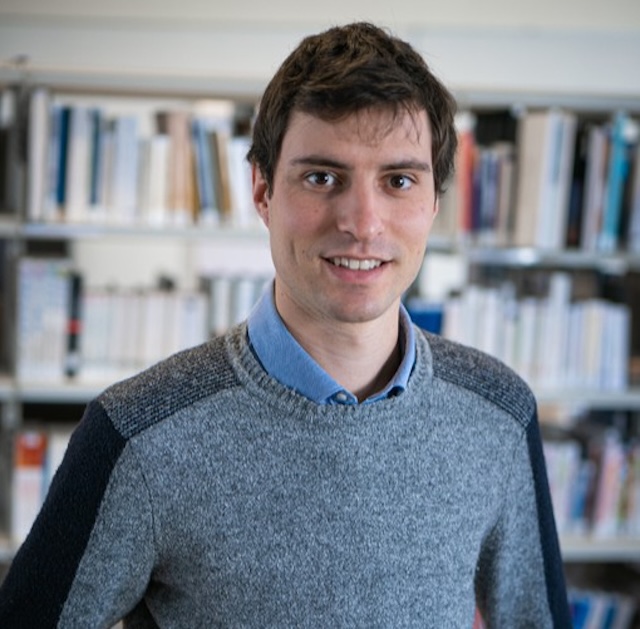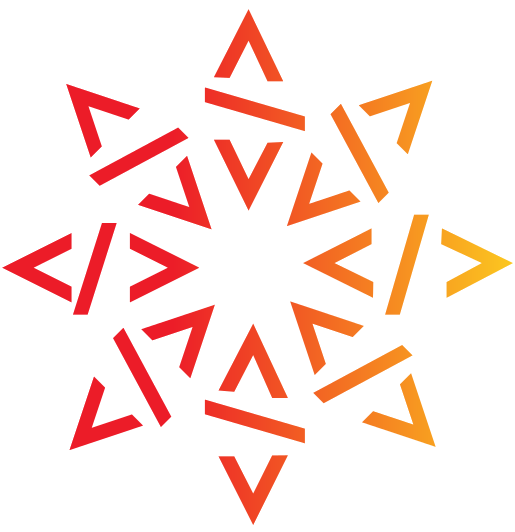How the Paris-Saclay library supports research software

Libraries advance teaching, research, and learning by providing resources, enabling discovery, and offering expert guidance. As software source code becomes increasingly central to contemporary scholarship, libraries must support researchers who work with it. In this series of interviews, professionals share their approach to research software.
The sprawling, collaborative world of Free and Open-Source Software (FOSS) is a digital village that can’t run by itself. It demands highly specialized operational roles, like the Data, Algorithm, and Code Administrator (ADAC). Since 2023, Cédric Mercier has steered this critical function at Paris-Saclay University, a role within the Department of Libraries, Information, and Open Science (DiBISO). As an ADAC, Mercier is responsible for establishing an institutional strategy for data and code. He and his team support researchers in managing their data and code according to best practices and sharing them with the wider scientific community. Mercier also chairs the Data and Information Systems Reporting Committee of the Association of University Library Directors and Management Staff (ADBU).
Spanning key fields like Science and Engineering, Life Sciences and Health, and Humanities and Social Sciences, Paris-Saclay University operates as a massive consortium. Its structure incorporates five faculties, three IUTs, five grandes écoles, two associate member universities, and seven research bodies. Cédric Mercier details the University’s strategy for supporting academic software, a strategy now commented by its decision to sponsor Software Heritage in 2025.
Key takeaways:
- In 2026, Paris-Saclay University plans to publish its comprehensive roadmap for software and source code strategy.
- One of Paris-Saclay University’s key objectives is to build on existing initiatives at the institutional level, such as the research journal Image Processing On Line (IPOL), a diamond-model review hosted by the Centre Borelli at ENS Paris-Saclay.
- The institution plans to strengthen its support systems by prioritizing practical, early instruction; for example, researchers will be encouraged to deposit code on HAL, consistent with their practice for publications.

What essential resources do you recommend for learning the fundamentals of software engineering?
Our researchers typically look for practical solutions. We guide them to the most appropriate resources based on the language they are using. For Python users, for example, PyOpenSci provides peer review for open source software and offers packaging guides to ensure the code’s quality and maintainability. Additionally, we advocate for the use of a software forge like GitHub, which is already standard in our labs. We ensure this knowledge transfer happens early by training the students on these tools from their first year.
How does your institution help researchers get and use the software they need, including technical dependencies?
In line with its Open Science objectives, Paris-Saclay University is developing a unified, formalized policy on research data, source codes, and software. This strategy brings together all 14 component and partner institutions and is scheduled for publication in 2026. As the ADAC, I consult with the university’s support teams and scientific communities to make recommendations. One tangible outcome is our financial backing of the Software Heritage infrastructure. Key proposals under discussion include better promotion of existing resources (e.g., institutional forges) and expanding efforts to train and encourage all researchers to share their software.
How does the library address the management of research data and the related source code?
We start by gathering data: we want to map the forges and repositories used by our affiliated researchers and gain a clearer picture of their code-sharing habits. Beyond that, we’re committed to quickly mobilizing our resources to offer concrete support to our scientific communities.
Our medium-term goal is to implement doctoral training on code and software sharing. We also plan to introduce software paper workshops, modeled after our successful data paper initiative.
Archiving code via deposit in HAL is a priority, a practice that aligns with the university library’s traditional mission to preserve and provide access to the scientific heritage. Longer term, we might even explore semi-automated archiving for codes stored on our mesocenter‘s internal servers. Ultimately, our role as a library and support service is simple: to make it easier for researchers to meet the challenges of sharing and opening up scientific knowledge.
Where does Software Heritage integrate with—and add value to—your existing services?
Software Heritage services strongly align with the university’s strategic priorities. Via its “Springboard” project (ExcellencES funding), Paris-Saclay University has strategically dedicated both financial and human resources to support open-source code, notably through its sponsorship of Software Heritage.
More specifically, we are very interested in the interoperability between HAL and Software Heritage. Our goal is to develop a new service that helps researchers publish and deposit their code through our HAL portal. We already have several successful initiatives running, such as IPOL, which already links code cited in its articles directly to Software Heritage for archiving.
What are the biggest obstacles your institution faces in getting researchers to archive and share their source code?
As is often the case in Open Science, the main challenge is shifting from individual or community-based initiatives to a cohesive institutional policy—one complete with clear objectives, methodology, and resources. Our aim isn’t to restrict communities; it’s to build upon existing work, highlight successful initiatives, and use those examples to encourage all researchers to share their code. We must ensure research teams understand the intrinsic value of their code. Sharing code not only fulfills the goals of transparency and reproducibility, but it also significantly boosts the visibility and impact of their published results.
What key partnerships or collaborations do you believe are necessary to improve the sustainability of research software source code?
At Paris-Saclay University, our code archiving maturity has not yet reached the level of our practices for publications or research data.
I believe collaboration must happen on several fronts, beginning with a vital partnership between research teams and central university services (like the library).
Researchers tell us what they need, and in return, we address those needs while raising their awareness of the university’s objectives in terms of sharing and opening up code and software. Beyond this internal dynamic, institutional collaboration is crucial, particularly with partners like Software Heritage. Financial support for them is a natural fit, given that we already benefit from their digital infrastructure and expertise. Finally, publishers also have a vital role, notably by requesting a “code availability statement” to mandate that the code linked to an article is properly archived.
What new areas of expertise are you currently working to build in your team?
Today, staff who support research data sharing are being asked to gradually integrate support for code and software sharing—a significant evolution for initiatives like our “DatASaclay” data workshop. Our goal is to ultimately develop the expertise needed to help researchers write software papers and software management plans, modeling them after our successful data management plans. We are building these new competencies by leveraging existing skills in referencing, archiving, and sharing publications and data, complemented by dedicated monitoring and training. For instance, we’re closely tracking new academic Open Source Program Offices (OSPOs), like the one at the University of Grenoble Alpes. To accelerate this, we will recruit an engineer in January 2026 specifically to support the computer science community, where the challenges of code sharing are most pressing.
Up next
- Stay tuned for the next interview in our upcoming series with leading librarians.
- Catch up on previous interviews
- Support Software Heritage, become a sponsor
- Check out the resources on open science produced by Software Heritage
- Implement software deposit in HAL:
- Guide for the end-users
- Guide for the moderators (FR)
- Software deposit tutorials series
- Train the trainer resources: train staff to become effective helpers
- To request training (moderation or trainer training), please contact the Center for Direct Scientific Communication:
- Email: sebastien.mazzarese/@/ccsd.cnrs.fr
- Advocate for software deposit among research management.
- Read the SWH Open Science blueprint
- Di Cosmo, R., Granger, S., Hinsen, K., Jullien, N., Le Berre, D., Louvet, V., Maumet, C., Maurice, C., Monat, R., & Rougier, N. P. (2025). Stop treating code like an afterthought: Record, share and value it. Nature, 646(8084), 284–286. https://doi.org/10.1038/d41586-025-03196-0
#LibraryLeadership
